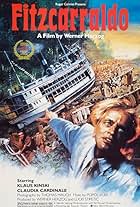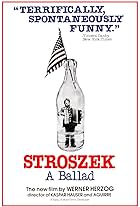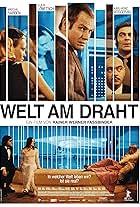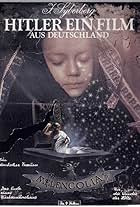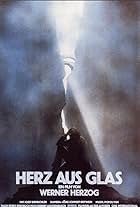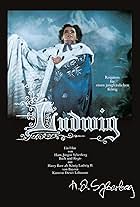New German Cinema
New German Cinema (Neuer Deutscher Film) was a continuation of the Young German Cinema, but with a more radical edge, as inspired by the student revolts of 1968. The movement was highly amorphous, and although most directors practiced critical political cinema, notable exceptions exist with directors Werner Herzog and Wim Wenders.
Directors such as Alexander Kluge engaged in "political modernism" and worked in a collage form, often alternating Documentary and fiction footage. Political modernism was continued by husband and wife duo Jean-Marie Straub & Danièle Huillet, who frequently worked in minimalism (although they occasionally employed the collage form). Hans-Jürgen Syberberg was the most extreme, and worked in monumental tableaux while making grand theatrical expositions of German historical figures. All of these film-makers were strongly influenced by the writings of Bertolt Brecht.
In its more mainstream wing, Volker Schlöndorff found success with films like Die Blechtrommel [The Tin Drum] (1979). Working with wife Margarethe von Trotta, he applied political commentary to conventional narratives in works like Die verlorene Ehre der Katharina Blum [The Lost Honour of Katharina Blum] (1975), which examines West German terrorism and the print media.
The Arbeiterfilm and Heimatfilm genres were popular among audiences in the 1970s, as were the films of Rainer Werner Fassbinder, particularly Die bitteren Tränen der Petra von Kant [The Bitter Tears of Petra von Kant] (1972) and Angst essen Seele auf [Ali: Fear Eats the Soul] (1974). His work stands out amongst the New German Cinema directors in his rejection of Brecht. He instead embraced Melodrama and drew heavily from Hollywood director Douglas Sirk, whilst claiming to want the audience to "feel and think". His films are also famous for their examinations of power structures and group dynamics.
Throughout its existence, the New German Cinema largely moved from radically political to more politically reformist. Fassbinder - who started out by adapting Brecht - exemplifies this, as does the anthology Deutschland im Herbst [Germany in Autumn] (1978) which came out toward the end of the movement. The movement is said to have ended either in the late 1970s, or with Fassbinder's death in 1982.
Directors such as Alexander Kluge engaged in "political modernism" and worked in a collage form, often alternating Documentary and fiction footage. Political modernism was continued by husband and wife duo Jean-Marie Straub & Danièle Huillet, who frequently worked in minimalism (although they occasionally employed the collage form). Hans-Jürgen Syberberg was the most extreme, and worked in monumental tableaux while making grand theatrical expositions of German historical figures. All of these film-makers were strongly influenced by the writings of Bertolt Brecht.
In its more mainstream wing, Volker Schlöndorff found success with films like Die Blechtrommel [The Tin Drum] (1979). Working with wife Margarethe von Trotta, he applied political commentary to conventional narratives in works like Die verlorene Ehre der Katharina Blum [The Lost Honour of Katharina Blum] (1975), which examines West German terrorism and the print media.
The Arbeiterfilm and Heimatfilm genres were popular among audiences in the 1970s, as were the films of Rainer Werner Fassbinder, particularly Die bitteren Tränen der Petra von Kant [The Bitter Tears of Petra von Kant] (1972) and Angst essen Seele auf [Ali: Fear Eats the Soul] (1974). His work stands out amongst the New German Cinema directors in his rejection of Brecht. He instead embraced Melodrama and drew heavily from Hollywood director Douglas Sirk, whilst claiming to want the audience to "feel and think". His films are also famous for their examinations of power structures and group dynamics.
Throughout its existence, the New German Cinema largely moved from radically political to more politically reformist. Fassbinder - who started out by adapting Brecht - exemplifies this, as does the anthology Deutschland im Herbst [Germany in Autumn] (1978) which came out toward the end of the movement. The movement is said to have ended either in the late 1970s, or with Fassbinder's death in 1982.
List activity
156 views
• 4 this weekCreate a new list
List your movie, TV & celebrity picks.
- 50 titles

